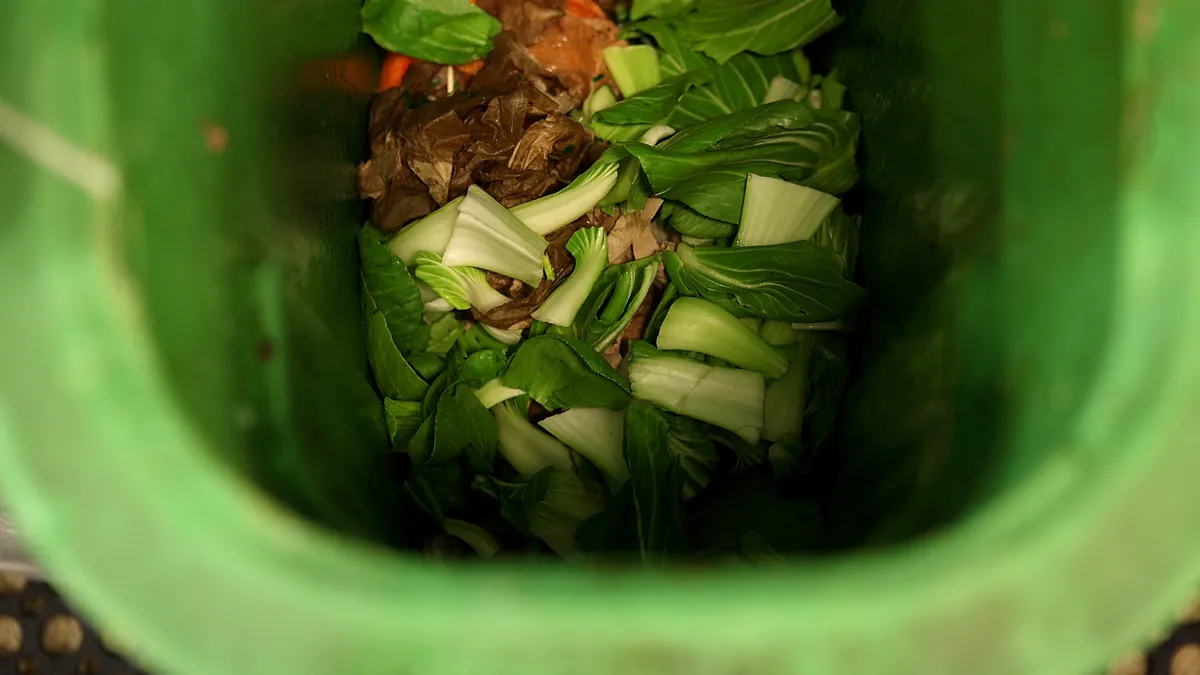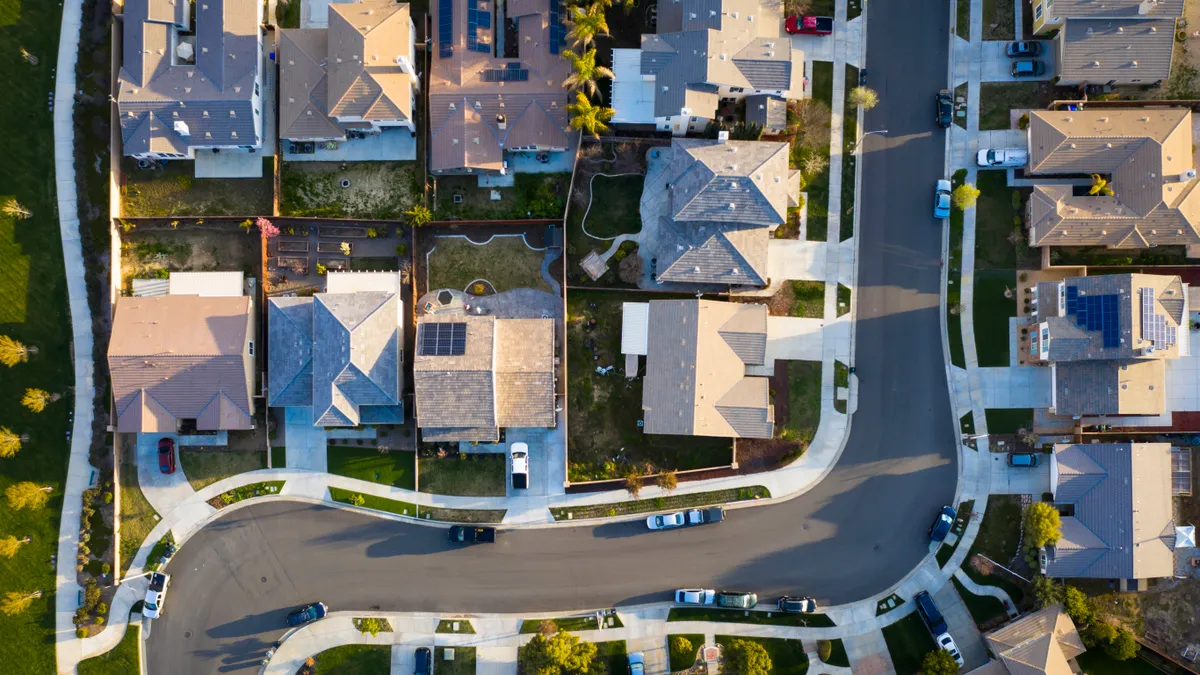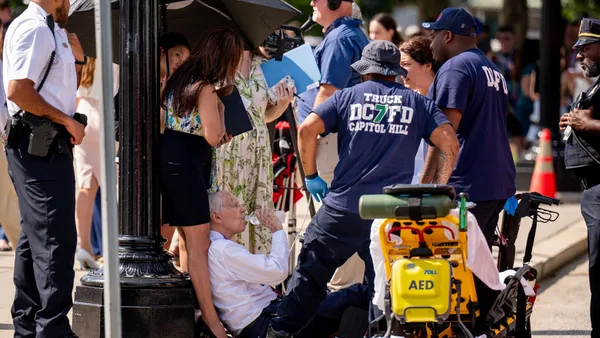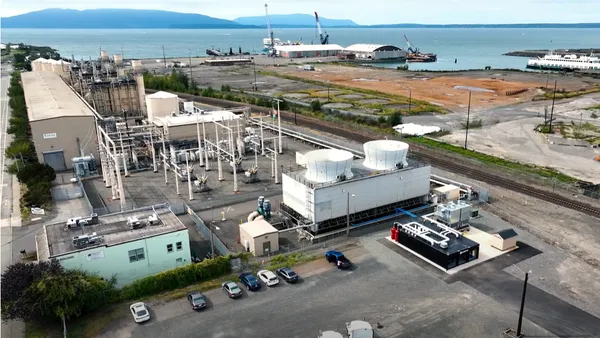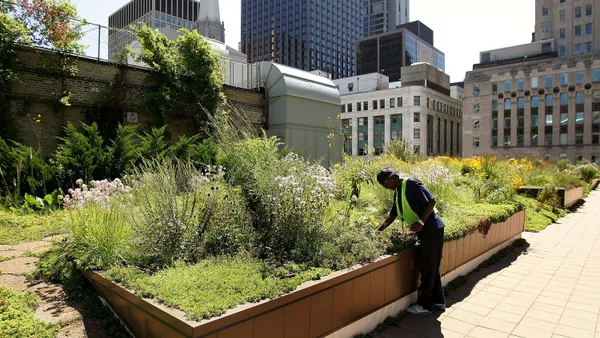As cities including New York, Boston and Chicago this year look at expanding organics diversion or curbside collection to advance their zero-waste goals, longstanding efforts in Minneapolis could prove instructive.
In the past decade, the city has initiated residential curbside organics collection and enacted a food waste diversion requirement for large commercial generators. Hennepin County, which encompasses the city, mandated curbside organics collection for its jurisdictions by the start of this year. Recycling leaders in the city and county were spotlighted in a Solid Waste Association of North America virtual event last week that in part detailed the region's policies, infrastructure and strategies for expanding and improving its programs.
For Minneapolis, what started as a pilot program in 2008 turned into a citywide rollout in 2015 and 2016. In its first year, the program had an approximately 32% sign-up rate and drew 825 tons. In 2021, the sign-up rate was roughly 51% for 5,838 tons, according to figures shared by Recycling Coordinator Kellie Kish.
To increase participation, the city's messaging has largely centered on the environmental benefits, the ease of participation, and the ability for participants to save money by switching to a smaller garbage cart, Kish explained. Outreach strategies have evolved as the program has grown, with previous years leaning heavily on direct mail and door-knocking. In 2022, the team is targeting 13 neighborhoods where the sign-up rate is below 30% with direct mailers in multiple languages. It's also leveraging the city’s social media channels. “We're hoping to maybe have a viral TikTok here in the next several months,” Kish said.
Community buy-in is key, Kish said. "Get people talking — because not everyone loves to listen to the government, but if they're listening to their friends, family and neighbors, that peer pressure is going to get them eventually."
The Minneapolis program has been heralded by composting advocates nationally for its low contamination rate (around 1%, several years into the program). Kish noted that the city doesn't do automated collection, thus workers can check every cart every day. There was a bit of an uptick in contamination during the pandemic, which Kish attributed to rapid growth in program sign-ups, as well as the increase in takeout from restaurants, which had a hard time sourcing certified compostable food service packaging amid supply chain challenges. The most common contaminants have been plastic-lined paper products, Kish said. "Hopefully, we can get a compostable product labeling bill passed here this session, or maybe next," Kish added.
A new wave of programs?
With budget season unfolding and new mayoral administrations ramping up in some major cities, there’s buzz about the advent of potential curbside composting pilots and related programs.
- Boston: The city plans to pilot residential curbside collection for approximately 10,000 subscribers this year, with more details likely to come later this month as a contract is finalized.
- Chicago: Mayor Lori Lightfoot on Earth Day announced the city’s 2022 Climate Action Plan, which has a target to introduce "community-wide organic waste collection and decomposition by 2025," part of a broader goal to divert 90% of residential waste by 2040. The CAP also lays out how the Chicago Recovery Plan (the city's spending of federal relief funds) supports its climate goals, noting that $45,000 is allocated to install new community compost collection hubs in neighborhoods underserved by organics collection services.
- Denver: When voting this November, city residents will have the opportunity to weigh in on a ballot initiative that in part, if adopted, would require all large generators — including residential buildings, restaurants, hospitals and more — to arrange compost pickup service.
- New York City: A group of city council members last week introduced a bill to establish a citywide curbside organics collection program for residential buildings. Mayor Eric Adams, during a budget presentation last week, announced plans for 100 schools to host community bins to gather organic waste for composting. Adams has opted not to expand the budget for residential curbside pickup.
- Washington, D.C.: Budget recommendations from the city council's Committee on Transportation and the Environment in April proposed approximately $4.4 million in funding for the Department of Public Works to establish a curbside composting pilot serving 10,000 properties, which could "provide a model for the launch of universal curbside composting in the near future.”



